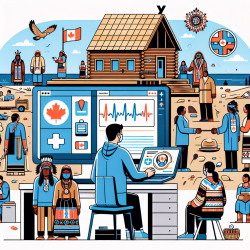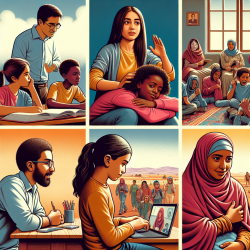Understanding TB in Indigenous Communities: A Call for Culturally Responsive Healthcare
As practitioners committed to improving health outcomes for all, it's crucial to understand the intersection of healthcare delivery and cultural sensitivity, particularly in Indigenous communities. The research article "The Enduring Plague: How Tuberculosis in Canadian Indigenous Communities is Emblematic of a Greater Failure in Healthcare Equality" provides a compelling analysis of this intersection. This blog aims to explore how we can apply the findings of this research to enhance our practice and advocate for more equitable healthcare systems.
The Current State of TB in Indigenous Communities
Despite global advancements in TB prevention and treatment, Indigenous communities in Canada face disproportionately high rates of tuberculosis. Indigenous individuals are almost 300 times more likely to contract TB compared to non-Indigenous Canadians. This disparity highlights systemic failures in healthcare equality, deeply rooted in historical and ongoing colonial practices.
Understanding the Historical Context
The persistence of TB in Indigenous populations is not merely a medical issue but a symptom of broader social inequities. The history of colonialism in Canada, characterized by the imposition of residential schools and forced assimilation, has left a legacy of mistrust and trauma. These historical injustices have contributed to the current healthcare disparities, where Indigenous people often face barriers to accessing culturally appropriate care.
Implementing Culturally Responsive Healthcare
To improve health outcomes in Indigenous communities, healthcare practitioners must prioritize culturally responsive care. This involves recognizing and respecting the unique cultural needs of Indigenous patients. Here are some strategies practitioners can implement:
- Community Engagement: Work closely with Indigenous leaders and communities to develop healthcare strategies that are culturally sensitive and community-driven.
- Cultural Competency Training: Undergo training to better understand Indigenous cultures, languages, and healing practices.
- Collaborative Care Models: Integrate traditional Indigenous healing practices with modern medical treatments to provide holistic care.
Encouraging Further Research
While the research provides valuable insights, there is a need for ongoing investigation into the social determinants of health affecting Indigenous communities. Practitioners are encouraged to contribute to research efforts and advocate for policies that address these determinants, such as housing, education, and economic opportunities.
By understanding the historical context and implementing culturally responsive practices, we can begin to address the healthcare inequities faced by Indigenous communities. As practitioners, our role extends beyond treatment; we must be advocates for systemic change and equity in healthcare.
To read the original research paper, please follow this link: The Enduring Plague: How Tuberculosis in Canadian Indigenous Communities is Emblematic of a Greater Failure in Healthcare Equality.










